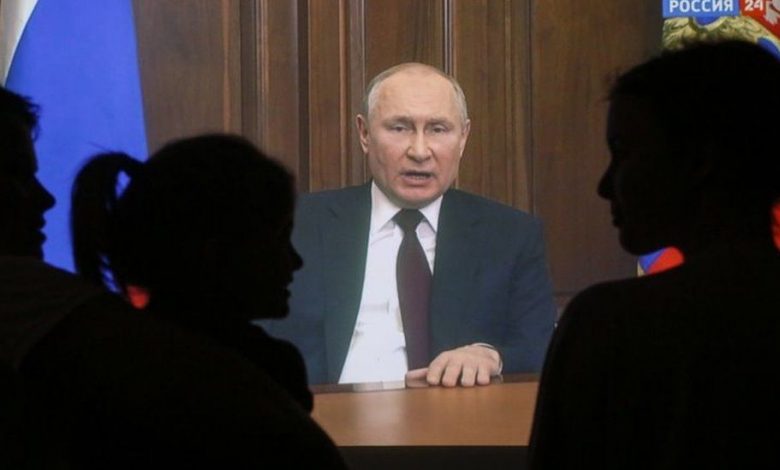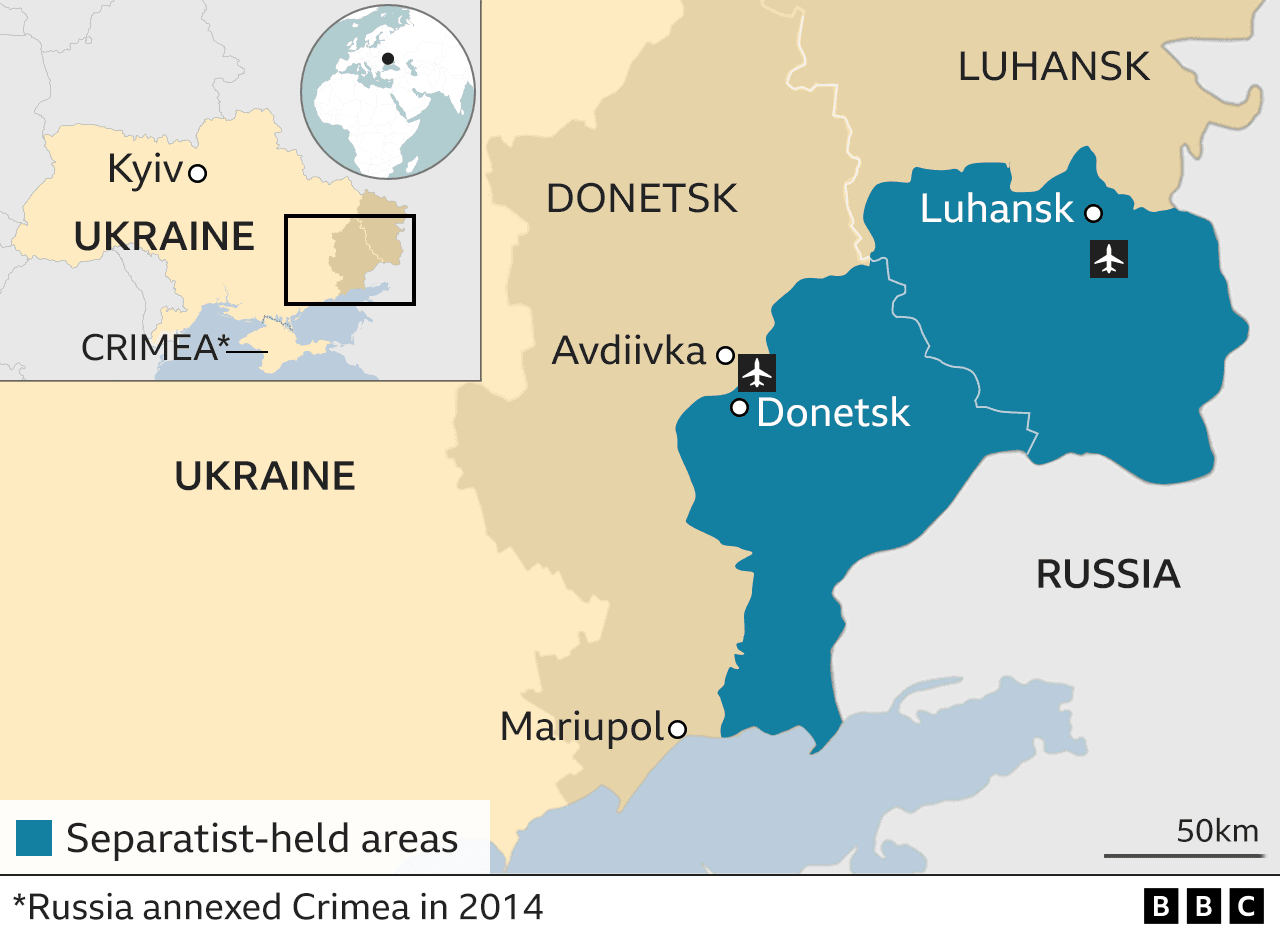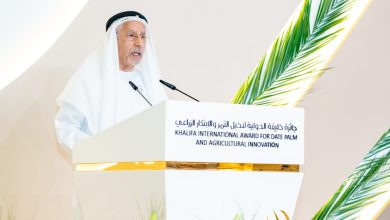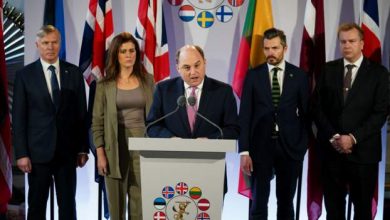Ukraine crisis: Russia orders troops into rebel-held regions
Russian President Vladimir Putin has ordered troops into two rebel-held regions in eastern Ukraine, after recognising them as independent states.

Russia said the troops have not yet been deployed but will be “peacekeeping” in the regions, which it has backed since 2014.
The US said calling them peacekeepers was “nonsense”, and accused Russia of creating a pretext for war.
Several countries have announced sanctions in response.
Ukraine’s president said his country was “not afraid of anything or anyone”.
In a late-night televised address to the nation, President Volodymyr Zelensky called for “clear and effective actions of support” from Ukraine’s international allies.
“It is very important to see now who our real friend and partner is, and who will continue to scare the Russian Federation with words only,” he added.


Fears over an invasion have been rising in recent months, as Russia has massed some 150,000 troops along Ukraine’s borders, according to US estimates.
At an emergency meeting of the United Nations Security Council, US Ambassador Linda Thomas-Greenfield dismissed Russia’s claims that troops would be taking on a “peacekeeping” role, saying: “We know what they really are.”
Recognising Luhansk and Donetsk as independent was part of Russia’s bid to create a reason to invade Ukraine, she said.
- EXPLAINER: What does Putin want?
- ON THE GROUND: War, sickness and love in rebel-held Ukraine
- LIVE: Latest updates on Ukraine
Russia has been backing a bloody armed rebellion in eastern Ukraine for the past eight years. Some 14,000 people – including many civilians – have died in fighting since then.
In recent years, Russian passports have been given out to large numbers of people in Donetsk and Luhansk.
The rebel-held areas have been evacuating women, children and the elderly to Russia since late last week.
In an hour-long address on Monday, Mr Putin said Ukraine was an integral part of his country’s history, and described eastern Ukraine as “ancient Russian lands”.
Russia’s UN Ambassador Vasily Nebenzya argued for the need to defend the rebel-held areas in eastern Ukraine’s Donbas region from what he called Ukrainian aggression. “Allowing a new bloodbath in the Donbas is something we do not intend to do,” he said.
But Mr Zelensky said Moscow’s recognition of the rebel-held regions represented a threat to the security of Ukraine and other European nations.
“If we have a full-scale escalation… our neighbours would be put at risk,” he said.
‘A barrage of sanctions’
Western powers have rallied behind Ukraine, promising tough sanctions against Russia if it invades – though it is not yet clear how effective this move could be.
The US swiftly condemned Mr Putin’s move, and President Joe Biden signed an executive order that prohibits new investment, trade and financing by Americans in the breakaway regions. The White House said the measures were separate to wider Western sanctions which are ready to go “should Russia further invade Ukraine”.
UK Prime Minister Boris Johnson said Russia had violated Ukrainian sovereignty and “completely torn up” international law. He said Mr Putin appeared “bent on a full-scale invasion”, and promised a “barrage of sanctions”.
German Chancellor Olaf Scholz said he was halting the process of certifying the controversial Nord Stream 2 pipeline because of Russia’s actions. The gas pipeline between Russia and Germany was completed last September but is not yet operating. Running under the Baltic Sea, it would double Moscow’s gas exports to Germany and circumvent Ukraine, which relies on existing pipelines for income.
The European Union pledged to “react with unity, firmness and with determination in solidarity with Ukraine”.
Both Mr Scholz and France’s President Emmanuel Macron spoke with the Russian leader ahead of his announcement.





